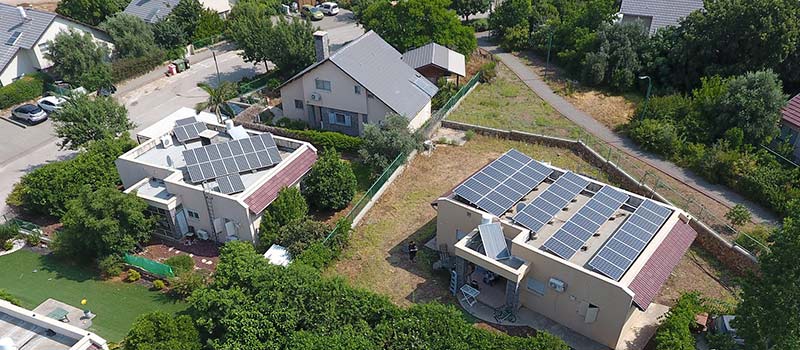How Much Will Solar Cost for a 2000 Square Foot House?
Do you have a small house? Do you want to invest in solar energy? It’s never been easier to create your own energy with solar power. In fact, going solar is one of the best ways to lower your home’s energy costs. If you have a 2000-square-foot house, finding out how much solar will cost for a 2000-square-foot house is very simple. With the average monthly cost of electricity being $119, it makes sense to invest in renewable sources for your home instead of relying on expensive utility bills or other types of expensive and notorious electric bills.
However, before taking the plunge and investing in a solar system for your home, it’s important to know what kind of return you can expect from an investment like this — financial or otherwise. Fortunately, there are plenty of solar companies that can help you calculate that for any given budget and location. In this article, we’ll take a look at how much it costs to install a solar system for a small house and how much you can expect to save each year on your electric bill after installing one.

How Much Does it Cost to Install a Solar System?
In order to calculate the cost of an installation, you must first figure out how much your monthly electric bill is and what your total expected savings will be.
If you’re looking to install solar panels on a 2000-square-foot house, it’ll cost between $15,000 and $40,000. This number can vary depending on who you hire and where you live. During the installation process, all the necessary materials are installed. This includes metal frames, tiles, or glass that goes around the panels and wiring for electricity in between the panels themselves. In addition to this, there are certain safety precautions that need to be taken during installation such as:
- Installing a power supply line from outside
- Connecting cables from different areas in a safe manner
- Attaching any necessary grounding devices
- Checking and re-checking that everything is placed properly
- Ensuring that all materials are secured safely and securely
How Much Will I Save with Solar?
In order to calculate the return on your investment, it’s important to first determine how much energy you’ll be using in a year. All you have to do is divide your yearly energy use by the cost of installing solar panels on your house and voila! You know how much you will save per month and by the end of the year.
To determine how much money your solar panels will save you each year, calculate how much you spend on electricity annually (for reference, the typical American family spends about $1,450 a year on electricity). Then, determine what your current utility rate is, keeping in mind that utility rates tend to increase 2% or so each year (yet another reason to install solar panels).

What’s the Return on Investment (ROI) with Solar?
With a solar system, you have the potential to save money while getting a return on investment. This return on investment is measured in terms of dollars saved or invested in your system. In other words, if you happen to put $1,000 into a solar system and you end up saving $500 worth of electricity each year for the next 20 years, then your return on investment would be 50 percent.
You can use various calculators online to find out how much you should invest for any given budget and location that are specific to your area. What’s important to note here is that these calculators will not only tell you how much money you can expect to save with this type of installation but also what kind of financial risk there is associated with it.
What Factors into the ROI of Solar?
There are a few different factors that go into the ROI of solar energy. The cost of installation, maintenance, and the monthly savings on your electric bill all contribute to your return on investment (ROI).
The first factor is the cost of installation. This usually ranges from $2.77 per watt for residential systems. Another factor is maintenance costs, which can be about$1000 per year depending on how often you need to replace panels or do preventative maintenance to prolong system life.
Conclusion
Solar is not the cheapest energy source, but with a return on investment of around 10 years, it’s still a good investment. It’s important to keep in mind that solar is not a good option unless you are willing to pay upfront. Solar panels can create a lot of debt, so you’ll need savings to pay for them.
